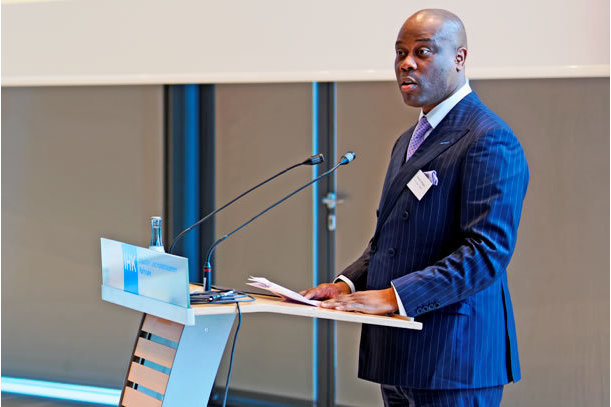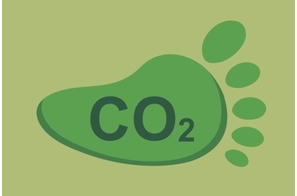Access Bank promotes sustainability awareness and impact

Summary
The ongoing pandemic presents a learning opportunity to improve sustainability in all its dimensions.
The COVID-19 pandemic has been described as the worst public health crisis the world has faced in a generation. It has caused the worst economic crisis since the Great Depression. Against the backdrop of the current health and economic crises, experts are also calling for urgent action to tackle the climate emergency to reduce or halt global warming and avoid the potentially irreversible environmental damage that would result from it.
Failure to limit the rise in global temperature in a timely fashion would cause severe environmental disasters that would lead to an economic crisis on the scale caused by COVID-19, or potentially worse. The coronavirus disease itself is deemed as an effect of environmental degradation. Hence, the ongoing pandemic presents a learning opportunity to improve sustainability in all its dimensions, including environmental, economic and social.
Awareness about sustainability has become more critical at this juncture to help in changing the behaviour and attitudes of individuals and organisations to foster a culture of protecting human health and the natural environment, showing commitment to innovation and being socially responsible individual and corporate citizens.
As a responsible corporate citizen and in demonstration of its strong commitment to all the pillars of sustainability, Access Bank Plc kicked off its 2020 Sustainability Awareness Week (SAW) on Monday, December 14, to communicate and educate people about sustainability.
The 2020 edition of the annual initiative, themed ‘Sustainability as Pathway to A Resilient Future,' featured five days of events that sought to influence and shift people's behaviour towards sustainable practices, showcase the positive impacts of the bank's sustainability strategy and initiatives and generally raise awareness of sustainability issues.
The concept of sustainability is about the ideals and best practices for achieving positive long-term societal, environmental and economic goals. Part of the objectives of sustainability is to provide the paradigm for thinking about the future and achieving sustainable development. The 1987 Brundtland Commission report defined sustainable development as development that “meets the needs of the present without compromising the ability of future generations to meet their own needs.”
Access Bank, the largest retail bank in Africa by customer base, has not only embedded the ethos of sustainability in its business strategy and operations; the bank is a champion of sustainability and sustainable finance in Nigeria and other markets where it operates across Africa and beyond. The annual SAW event is one of the outreaches and initiatives through which the bank continues to bring awareness about sustainability and support sustainable development of communities and countries.
The 2020 SAW held virtually in compliance with COVID-19 social distancing protocols. This year's SAW featured a set of 'edu-taining' activities aimed at empowering people to make ecologically responsible decisions. The activities also sought to enable participants to properly manage the physical, economic and psychological impact of recent happenings in Nigeria. The COVID-19 pandemic and social protests, for example, exacerbated the social and economic problems in the country last year.
“Social sustainability is an often-overlooked aspect of sustainability, as sustainable development discussions often focus on the environmental or economic aspects of sustainability,” Head of Sustainability at Access Bank, Omobolanle Victor-Laniyan, said, while commenting on the importance of the SAW.
Ms. Victor-Laniyan emphasised the bank’s embodiment of sustainability in all its dimensions. Through various efforts, including sustainable finance and renewable electricity, the bank is helping to reduce its carbon footprint. Coupled with its health and innovation financing tools, the bank is protecting its employees, customers, supply chains and the public by helping to make the world a safer and healthier place.
Speaking further, she said, “For us at Access Bank, we aim to create a diverse, healthy and socially sustainable workplace that promotes both the physical and the mental well-being of all our employees and stakeholders."
To ease the COVID-19-induced economic hardship on vulnerable individuals and groups, the bank provided over 4,000 essential kits to sickle cell patients, persons living with disabilities, orphanages, young people in correctional centres, widows and the elderly. According to a statement sent to Financial Nigeria by the bank, it used the opportunity of providing the palliatives to sensitise the people on COVID-19 prevention and treatment.
Additionally, the bank said it distributed 500 food palliatives, hygiene materials and over 5,000 education and communication materials to birth attendants, pregnant women and women with children under five years across communities in Lagos and Ogun.
The 2020 SAW, which rounded off on Friday, December 18, brought together employees, customers, vendors and other stakeholders of the bank.
Related
-
India’s sustainable eating habits offer hope for climate change mitigation
Sustainable eating comprises practices such as minimising food waste, prioritising plant-based diets, and consuming ...
-
Avoiding a climate lockdown
Global warming will cause drinking water to degrade and enable pollution-linked respiratory diseases to thrive.
-
Measuring and reducing your organisation's carbon footprint
Your organisation's motivations for calculating its carbon footprint are important as that determines how and what you ...










